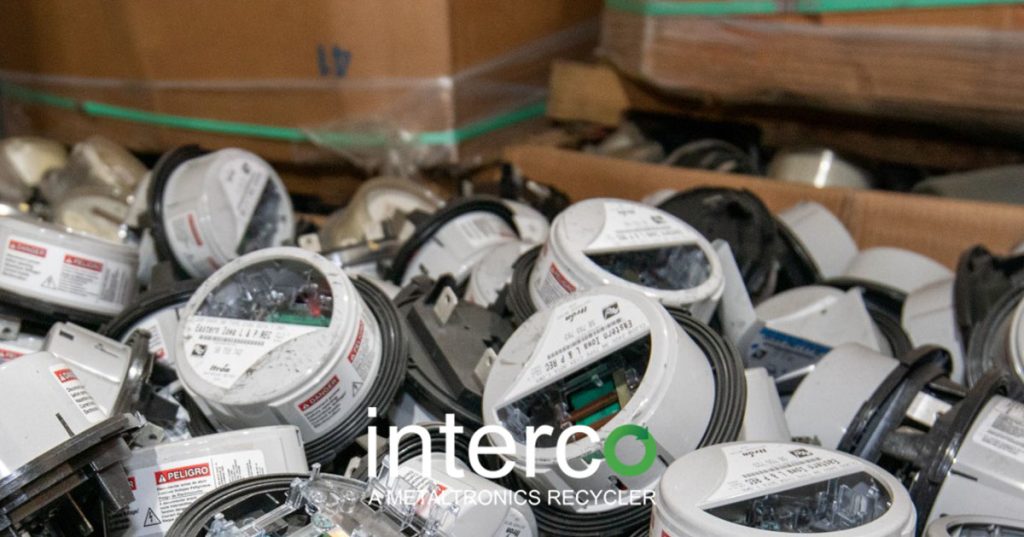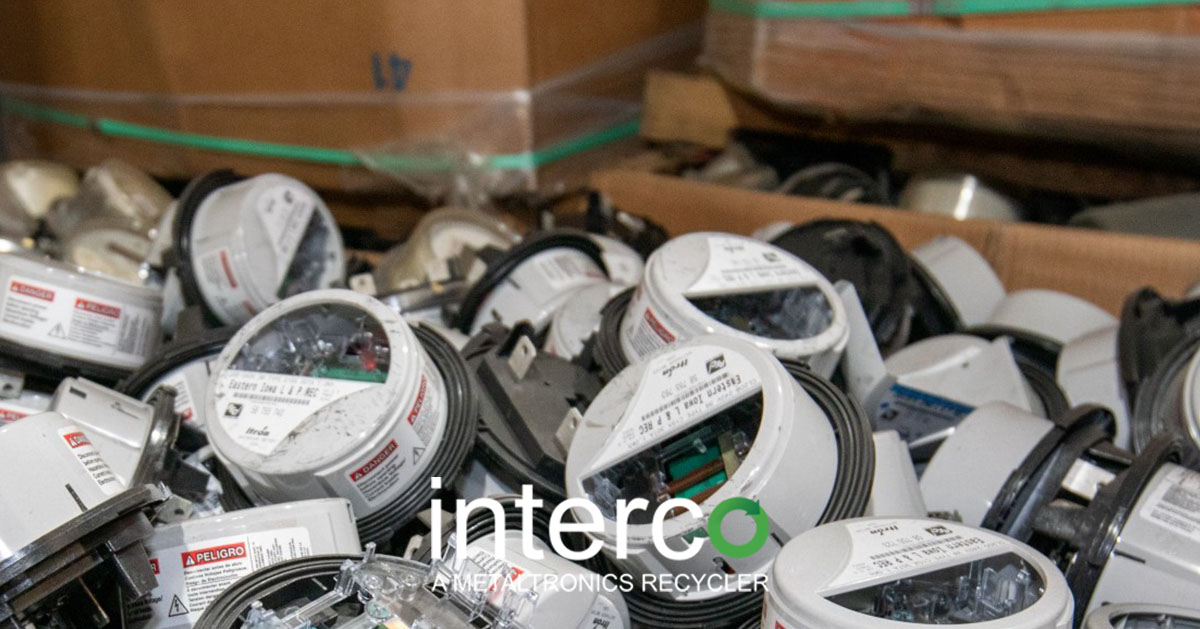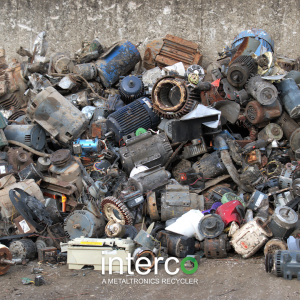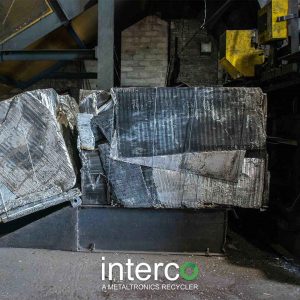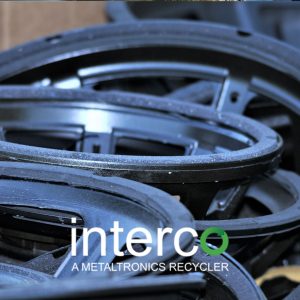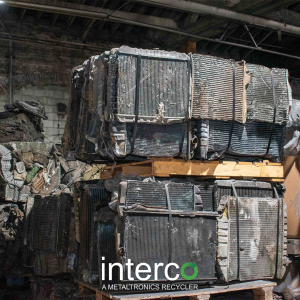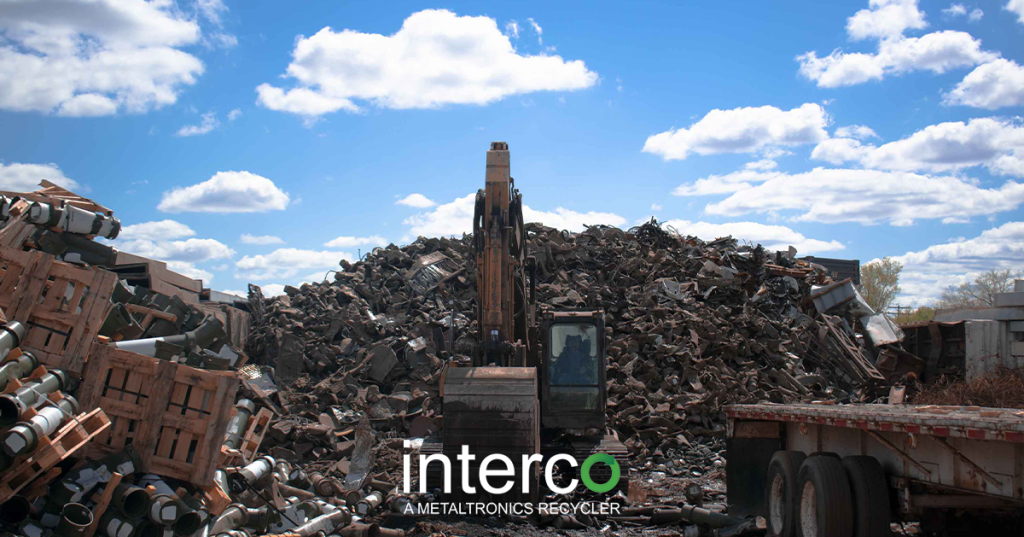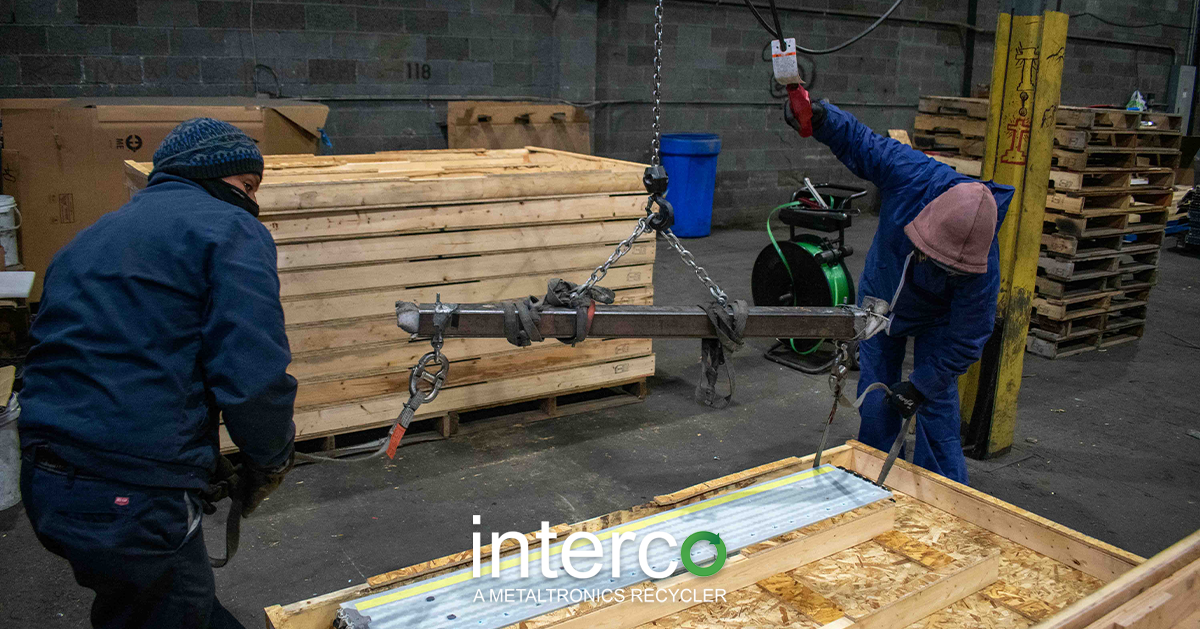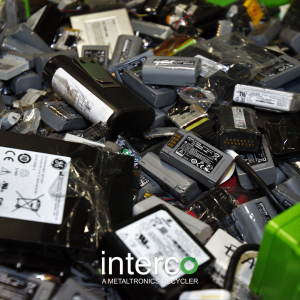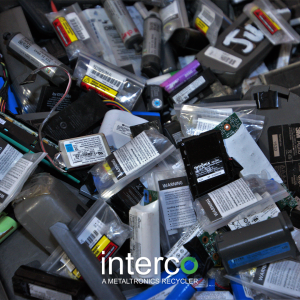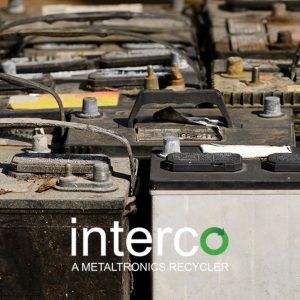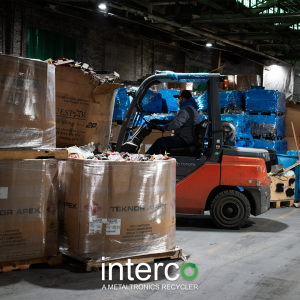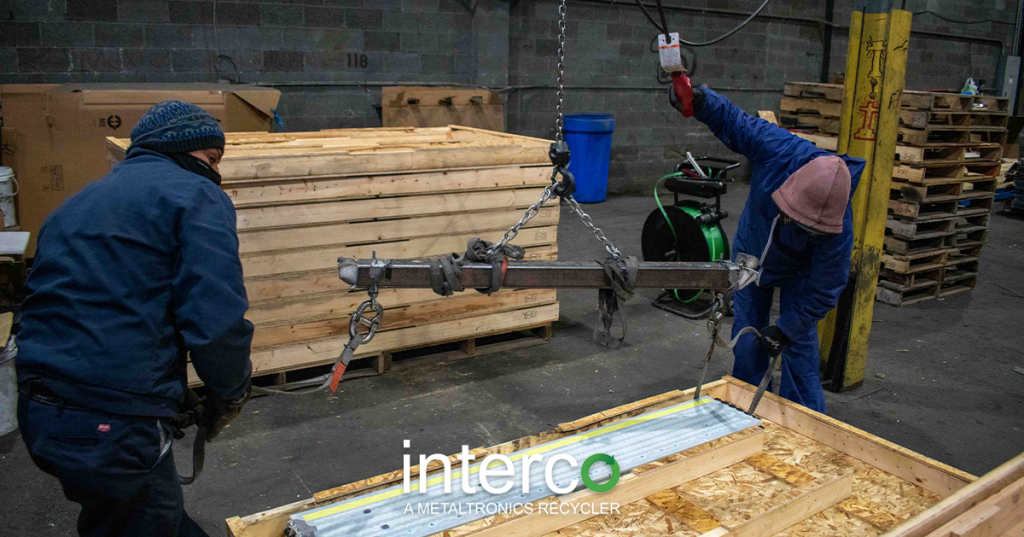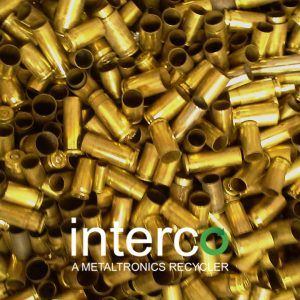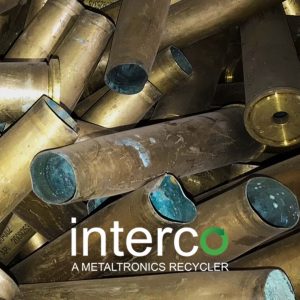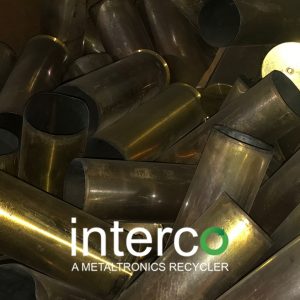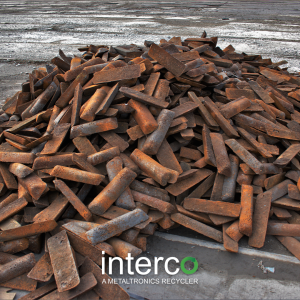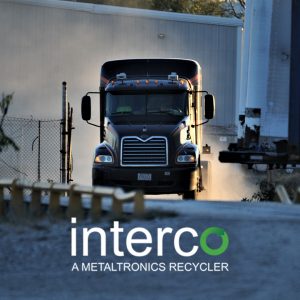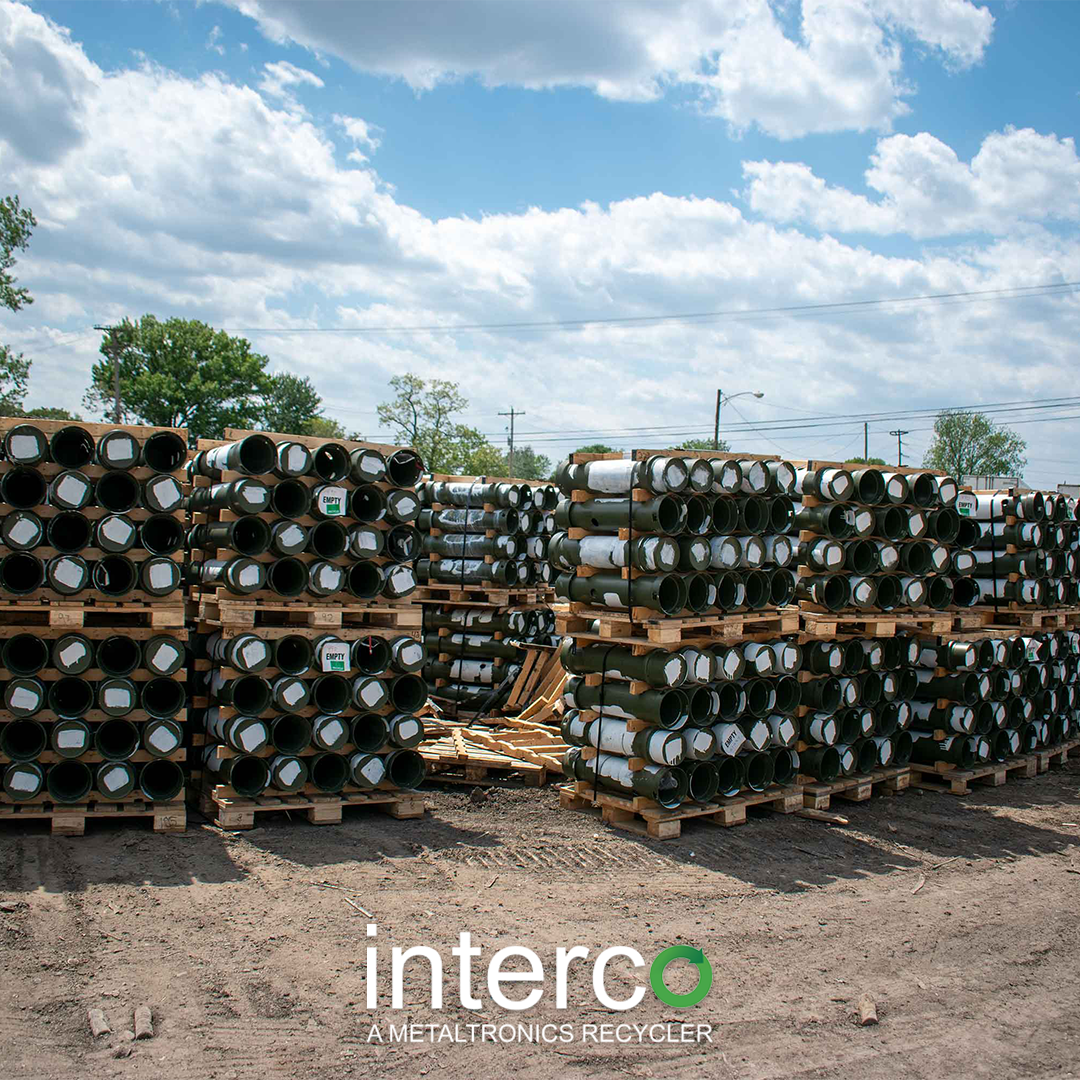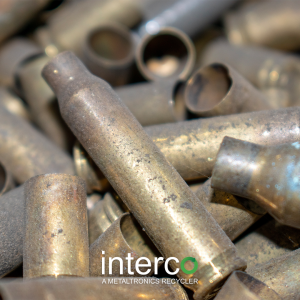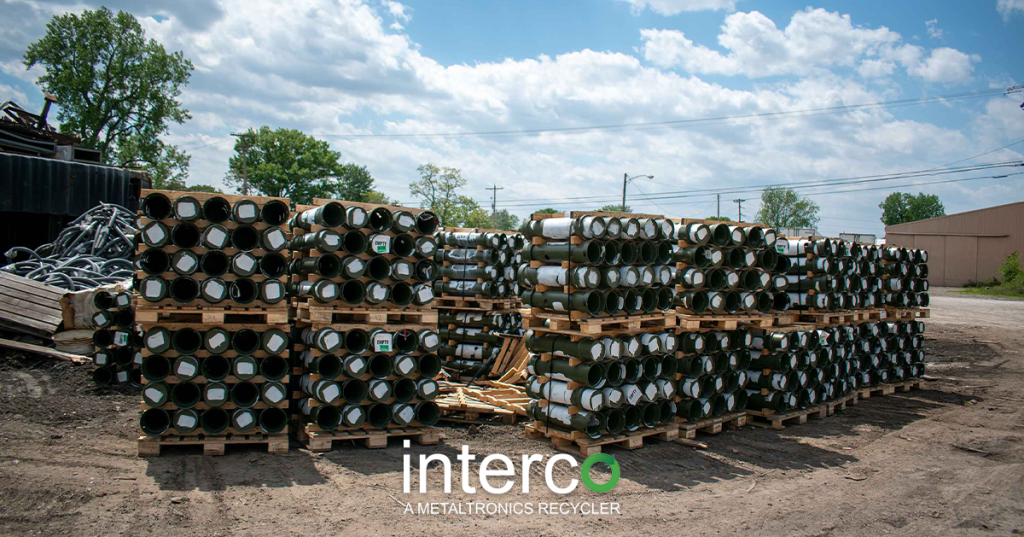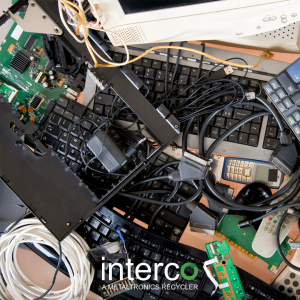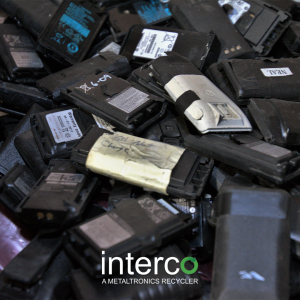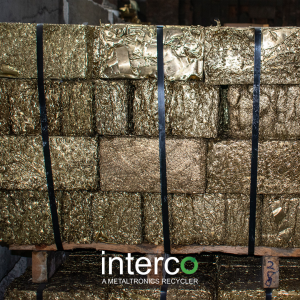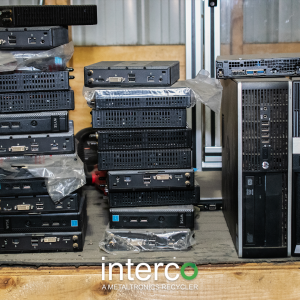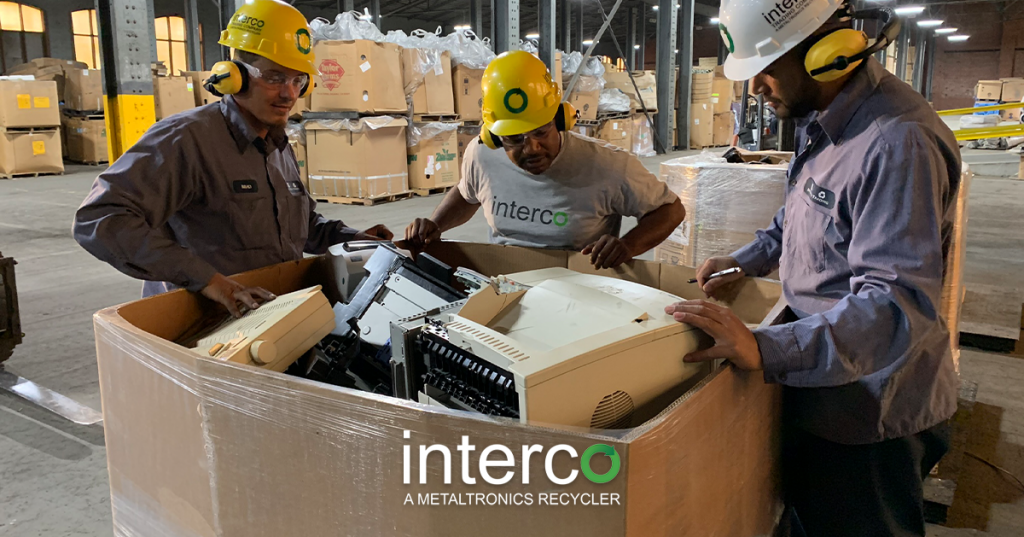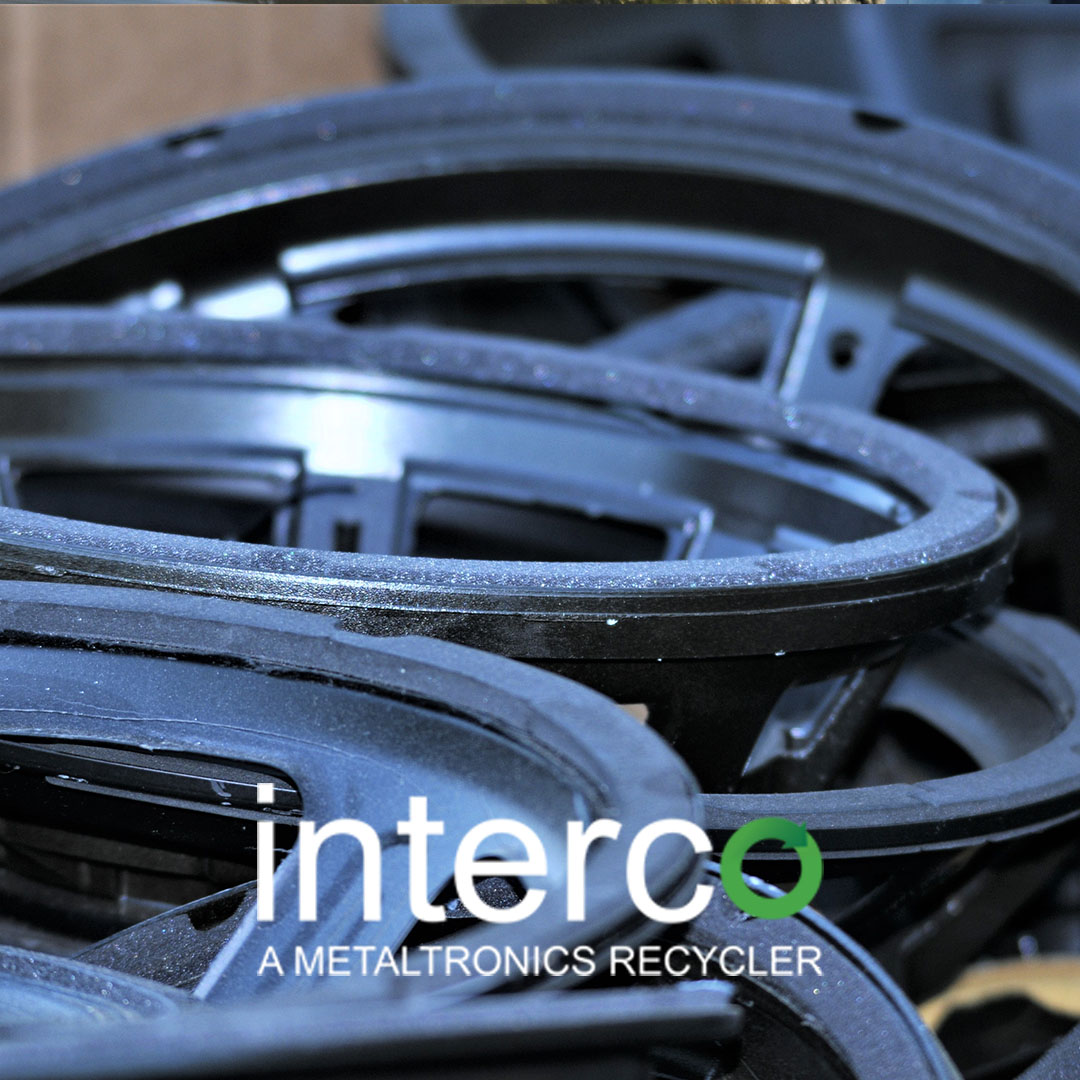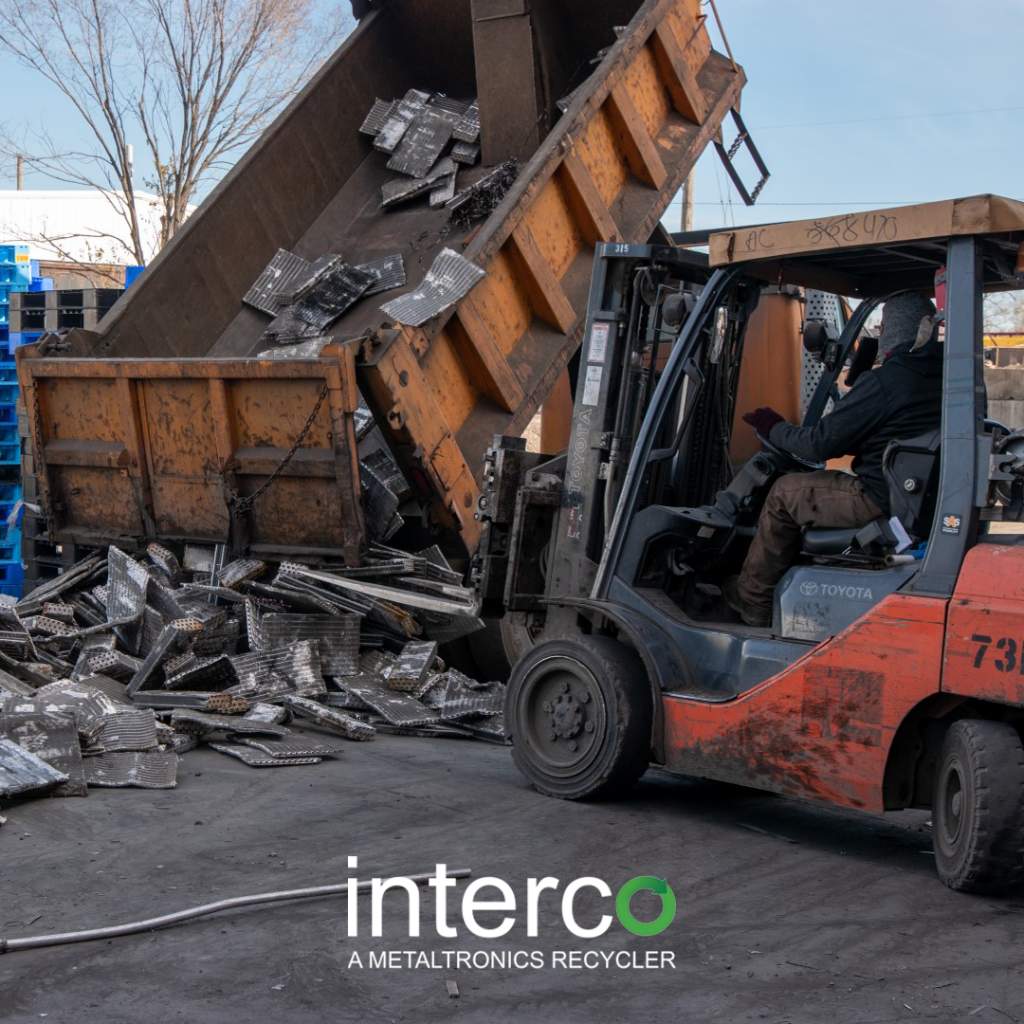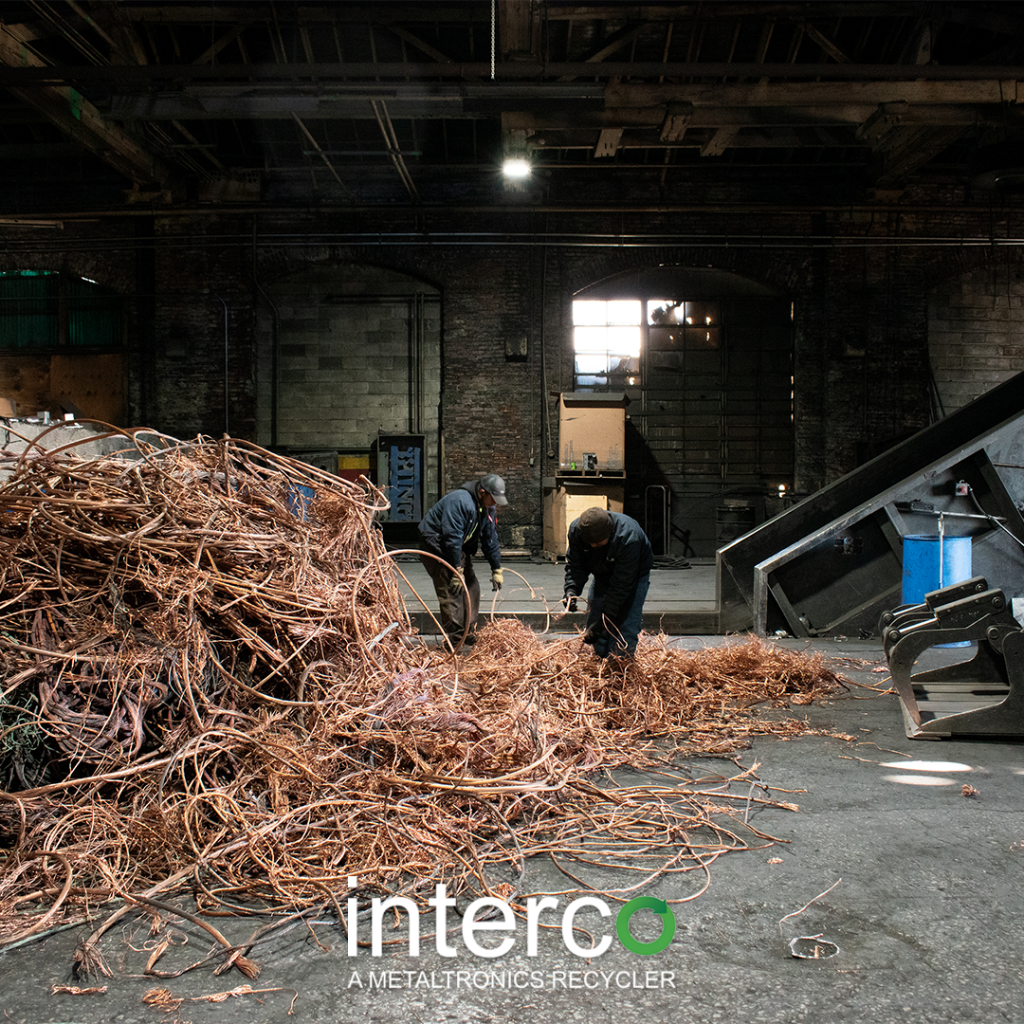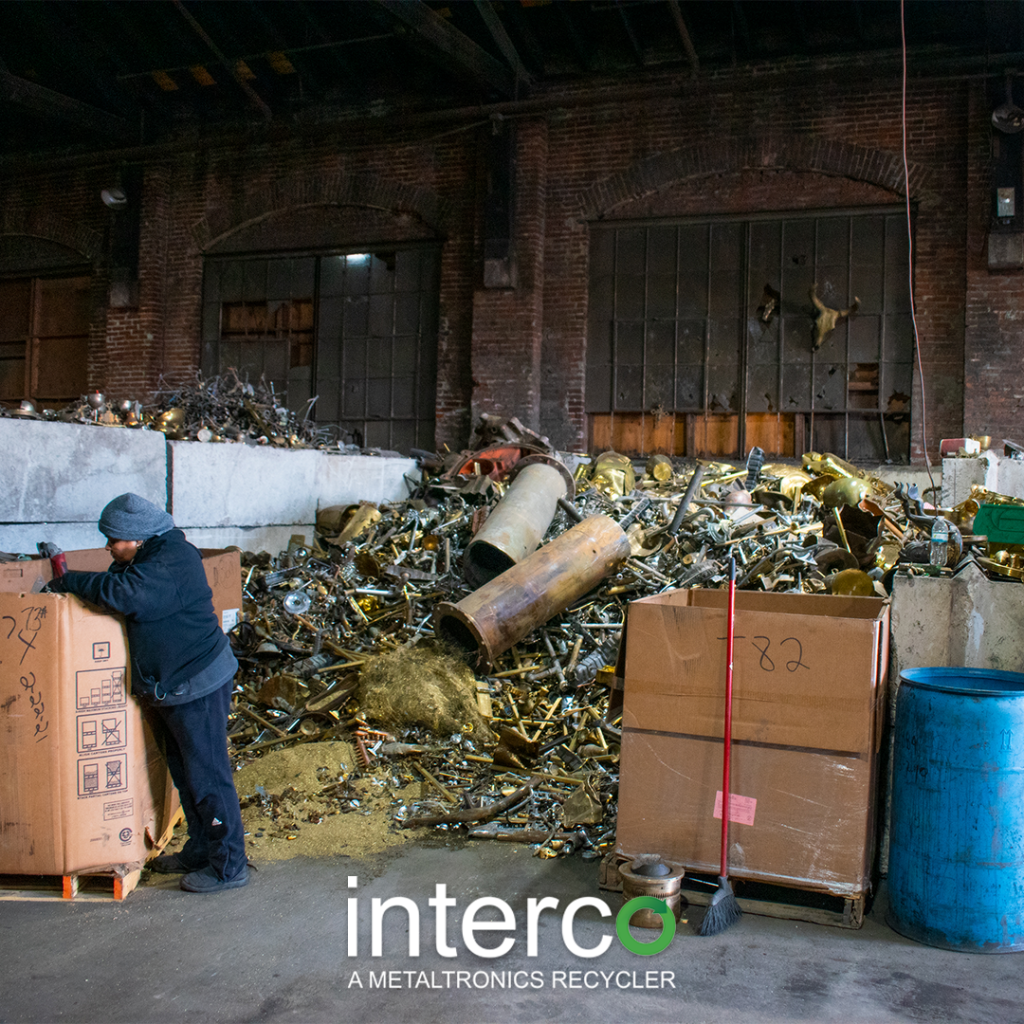Interco Recycles Utility Meters
Interco works closely with utility companies to recycle utility meters and other scrap products. The Interco facility processes over 20 million pounds of escrap and nonferrous metals per month. Recycling scrap utility products such as decommissioned meters allows companies to increase their bottom lines while also maintaining an environmentally friendly stance. Companies around the world rely on Interco for safe and secure utility recycling.
Utility Meter Recycling Process
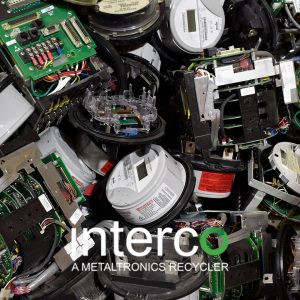
Interco recycles all types of utility meters including electric meters, gas meters, brass water meters, and electric water meters. Many older utility meters are being decommissioned and replaced by smart meters. As a result, piles of scrap utility meters are growing. Storing these out of date meters can be costly for utility companies. Interco solves this problem by offering the recycle of utility meters.
The process of recycling electric meters is easy and efficient with Interco:
- Firstly, expert staff detach the steel rings and collars from the scrap meters.
- Next, the staff removes any precious metals from the meters.
- Then, the circuit boards are disconnected and removed.
- Lastly, these metals and electronic components are sent to other areas of the facility for further processing.
The Interco Facility is Equipped for Large-Scale Scrap Metal Recycling
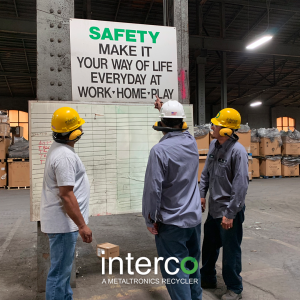
Interco recycles scrap utility meters at their the 450,000+ square foot recycling facility. The Interco recycling facility is comprised of seven buildings on more than 45 acres centrally located on the Illinois-side of St. Louis in the shadows of the Gateway Arch. The Interco recycling facility processes over 20 million pounds of material per month. The facility boasts a 145,000 square foot processing plant dedicated to the processing of computers and electronics. The nonferrous metal recycling processes use the remainder of the indoor facility.
Some aspects of scrap metal recycling can be dangerous. The staff at Interco is highly qualified to safely recycle high-risk materials. Several certifications demonstrate the company’s commitment to safe and secure recycling practices:
- ISO 14001 – Environmental Management Systems
- ISO 9001 – Quality Management Systems
- R2v3 – Responsible Recycling Standards
- ISO 45001 – Occupational Health and Safety Management Systems
Interco Recycles Nonferrous Metals for the Utility Industry
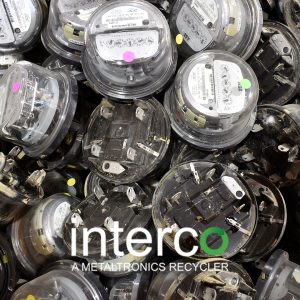
Interco processes over 12 million pounds of nonferrous material each month. The company uses several different processes to recycle nonferrous metals found in utility meters:
- Firstly, both mechanical separators and hand sorting techniques separate metals according to grade.
- Secondly, if necessary, the materials undergo processing in the metallic powder and dust separation plant.
- Next, a machine shreds the sorted metals into smaller pieces.
- Lastly, the company ships sorted, graded, and processed metals to end customers. These customers will refine and smelt the metal into ingots for manufacturers to use to make new products.
Maximizing ROI for Scrap Utility Meters
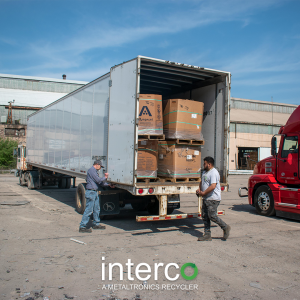
Unlike many recyclers, Interco has many years of experience in mixed load recycling of nonferrous metals and electronic scrap. The company receives approximately 50 mixed loads each day equaling one load every nine minutes. Additionally, Interco understands that many suppliers are unable to obtain the necessary inbound load minimum required by smelters, refineries, and manufacturers. When a supplier recycles metal scrap with Interco, a mixed load can contain five to ten different items. For example, items could include dross, skimmings, powder, and off-specification parts, among others.
The Interco commercial department has established contracts with smelters, refineries, manufacturers, and mills across the world. Interco sorts, grades, and processes materials into smelter-ready metals, therefore, the need for a middleman or broker is eliminated. As a result, smelters and refineries rely on Interco as a supplier to provide a recurring stream of material. Additionally, the contracts with these companies allow Interco to pay top dollar to their sellers. Therefore, the company is typically able to buy scrap utility meters higher prices than other recyclers who must search for an end consumer.
Choose Interco to Recycle Utility Meters
Interco recycles nonferrous metals including utility scrap. The company specializes in the subsequent placement of smelter-ready materials to end consumers across the globe. The company ships sorted, graded, and repackaged nonferrous scrap worldwide. The Interco commercial department utilizes established partnerships in the United States, Europe, Latin America, and Asia to provide the highest return on investment to their customers. As a result, utility companies all over the world rely on Interco for scrap metal recycling.
